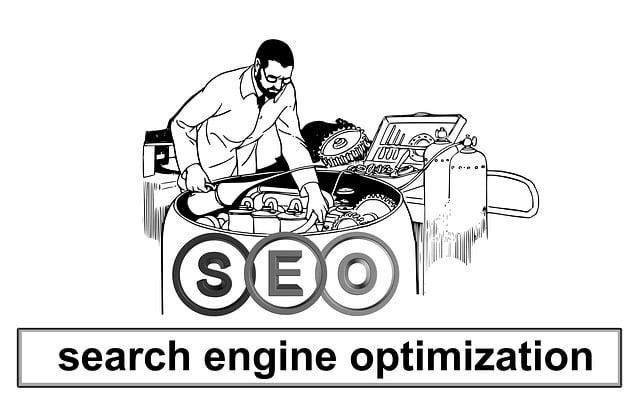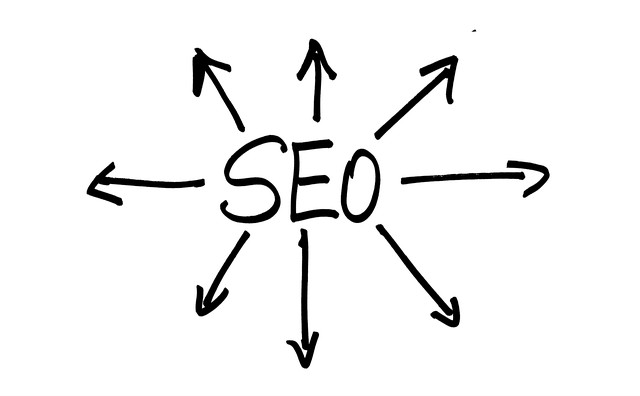In today's digital era, Artificial Intelligence (AI) has revolutionized Search Engine Optimization (SEO), shifting it from rule-based to data-driven strategies. AI tools empower marketers with advanced keyword research, natural language processing (NLP), personalized content creation, and automated task management. These technologies analyze vast datasets, predict popular search terms, enhance content readability, and improve website performance. AI-driven audits and personalization further optimize SEO efforts, leading to better rankings, increased organic traffic, and stronger user connections. Ethical considerations are crucial while leveraging these tools for maintaining content integrity and user trust. The future of SEO is set to be heavily influenced by AI, with machine learning algorithms enhancing audience targeting, content optimization, and overall user experiences.
In the evolving landscape of digital marketing, Artificial Intelligence (AI) is transforming search engine optimization (SEO) from a tactical approach into a dynamic, data-driven strategy. This article explores advanced SEO strategies leveraging AI’s potential across multiple facets. From keyword research powered by machine learning to content optimization through natural language processing, AI-driven tactics offer unprecedented insights for enhancing website performance. We’ll also delve into ethical considerations, integration tips, and future trends shaping the evolution of AI in SEO.
Understanding AI in SEO: The New Paradigm

In the rapidly evolving digital landscape, Artificial Intelligence (AI) is no longer a futuristic concept but a powerful tool that’s reshaping Search Engine Optimization (SEO). AI-driven SEO tactics represent a significant paradigm shift in how we approach ranking and visibility online. Gone are the days of purely rule-based optimization; today, advanced SEO strategies leverage machine learning algorithms to analyze vast amounts of data, predict user behavior, and understand searcher intent better than ever before.
This new paradigm enables marketers to create more personalized content that resonates with their target audience. By integrating AI into their SEO strategies, businesses can automate repetitive tasks, gain valuable insights from competitor analysis, and continuously refine their approach based on real-time data. The result is a heightened ability to capture higher rankings, drive organic traffic, and foster meaningful connections with online users.
Data Analysis and Machine Learning for Keyword Research

In the realm of AI-driven SEO, data analysis and machine learning play a pivotal role in uncovering valuable insights for keyword research, which is a cornerstone of advanced SEO strategies. These cutting-edge technologies enable search engine optimization professionals to delve deeper into vast amounts of data to identify keywords with high potential. By analyzing online trends, user behavior, and historical search patterns, AI algorithms can predict popular search terms and their future trajectory, giving businesses a competitive edge.
Machine learning models are trained on extensive datasets to recognize complex patterns and correlations that might not be apparent through traditional methods. This capability allows for more accurate keyword classification, ensuring that content is optimized for the right terms. As a result, websites can attract the target audience and improve their search engine rankings significantly in today’s digital era.
Natural Language Processing: Enhancing Content Optimization

Natural Language Processing (NLP) is revolutionizing the landscape of AI-driven SEO, offering advanced strategies to optimize content like never before. By employing NLP, search engine algorithms can understand and interpret human language more effectively, enabling them to deliver highly relevant results to users. This technology goes beyond traditional keyword matching by analyzing sentence structure, context, and semantic relationships, ensuring that web pages are accurately represented in search indexes.
In the realm of content optimization, NLP facilitates the creation of more user-friendly and meaningful text. It helps identify keywords, topics, and sentiment within a piece of writing, allowing for strategic adjustments to improve readability and engagement. Advanced SEO practices leverage this capability to craft compelling meta titles, descriptions, and headings that not only capture search engine attention but also enhance the overall user experience.
AI-Powered Website Audits and Performance Monitoring

AI-driven website audits are transforming the way businesses approach advanced SEO strategies. These intelligent systems can analyze vast amounts of data, identifying areas for improvement and offering insights that human analysts might miss. By leveraging machine learning algorithms, AI tools can scan through complex web architectures, assess content quality, and evaluate technical aspects like site speed and mobile-friendliness, all while providing actionable recommendations.
Performance monitoring is another area where AI excels. Automated systems can track key metrics such as click-through rates, bounce rates, and user engagement in real time, allowing businesses to swiftly adapt their SEO tactics. This continuous analysis enables them to stay ahead of trends, optimize content strategies, and ultimately improve overall website performance, contributing to better search engine rankings and increased organic traffic.
Personalization at Scale: Tailoring User Experience with AI

AI-driven personalization is transforming the way we approach Advanced SEO Strategies. By leveraging machine learning algorithms, marketers can now tailor content and experiences to individual users on a massive scale. This level of customization wasn’t possible before, where one-size-fits-all approaches dominated digital marketing. With AI, websites can deliver targeted recommendations, personalized landing pages, and dynamic content based on user behavior, preferences, and search history.
This new era of personalization enhances user satisfaction by creating a unique and relevant experience for each visitor. It also improves engagement and conversion rates as users are more likely to interact with content that feels specifically designed for them. Advanced SEO strategies that incorporate AI personalization offer a competitive edge, ensuring businesses stay ahead in the ever-evolving digital landscape.
Ethical Considerations and Ensuring Quality Content

As AI takes center stage in SEO, ethical considerations become paramount. The use of artificial intelligence to optimize content must adhere to transparent and honest practices, ensuring that users receive valuable information. Advanced SEO strategies employing AI should never compromise the integrity of content or mislead search engines and users. Striking a balance between automation and human oversight is crucial; AI tools can provide insights and suggestions, but final content quality checks should be conducted by humans to maintain authenticity.
To guarantee high-quality content, AI-driven SEO tactics must focus on generating unique, relevant, and engaging material. This involves refining language, ensuring coherence, and adhering to grammatical standards. Advanced strategies should aim to create content that resonates with the target audience, addressing their needs and preferences. By prioritizing user experience and delivering valuable information, AI can be a powerful ally in search engine optimization without compromising ethical standards.
Integrating AI Tools into Your SEO Workflow

In today’s digital era, AI-driven tools are revolutionizing every aspect of online marketing, and SEO is no exception. Integrating advanced SEO strategies powered by artificial intelligence into your workflow offers a multitude of benefits, from keyword research to content optimization. These tools can analyze vast amounts of data in record time, providing insights that would otherwise be laborious or time-consuming for human analysts. They enhance efficiency, enabling marketers to make data-driven decisions with precision and speed.
AI algorithms are adept at identifying complex patterns, which is crucial for staying ahead in a competitive online landscape. They can suggest tailored content strategies, optimize meta tags, and even predict search trends. By leveraging these tools, businesses can elevate their SEO efforts, improve search rankings, and ultimately drive more organic traffic to their websites.
Future Trends: The Evolution of AI in Search Engine Optimization

As AI continues to evolve, its impact on search engine optimization (SEO) will only deepen. Future trends suggest that artificial intelligence will become an integral part of advanced SEO strategies, revolutionizing how we optimize content for search engines. Machine learning algorithms can analyze vast amounts of data to understand user intent better, predict search trends, and provide insights into the ever-changing landscape of keyword rankings. This capability allows for more precise targeting of audience needs, enhancing the overall user experience.
The integration of AI in SEO will also streamline content creation and optimization processes. Intelligent systems can assist in generating relevant, high-quality content tailored to specific search queries. Natural Language Processing (NLP) enables AI to interpret human language, enabling it to offer recommendations for improving content structure, keyword placement, and meta tags. This technology promises to make SEO more efficient, allowing marketers to stay ahead of the curve in a rapidly changing digital environment.
